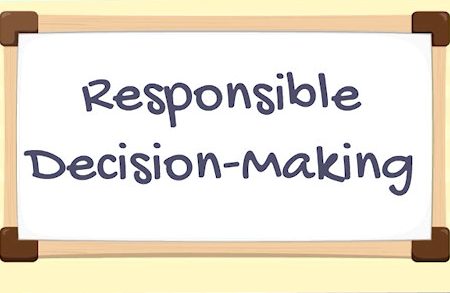
Prompts That Support Responsible Decision Making
- Critical Thinking: Assessing the ability to analyze information objectively, evaluate arguments and evidence, and make logical and well-informed decisions.
- Analytical Skills: Evaluating the capacity to break down complex problems into smaller components, identify patterns and trends, and apply systematic approaches to decision making.
- Risk Assessment: Measuring the ability to evaluate potential risks and benefits associated with different options or courses of action, considering both short-term and long-term consequences.
- Intuition and Gut Feeling: Assessing the capability to rely on instincts, gut feelings, or intuition when making decisions, and evaluating the accuracy and effectiveness of such intuitive judgments.
- Creative Thinking: Evaluating the skills to generate innovative ideas, think outside the box, and explore alternative solutions or approaches to decision making.
- Emotional Intelligence: Measuring the ability to recognize and understand one’s own emotions and the emotions of others, and use this emotional awareness to inform decision making in a balanced and empathetic way.
- Ethical Decision Making: Assessing the capacity to consider moral and ethical principles when making decisions, weighing the impact on stakeholders and the greater good.
- Decision Analysis: Evaluating the ability to gather and analyze relevant data, apply decision-making frameworks or models, and make informed and objective decisions based on evidence and information.
- Adaptability: Measuring the capability to adjust decisions and plans in response to changing circumstances, new information, or unforeseen challenges.
- Reflective Decision Making: Assessing the willingness and ability to reflect on past decisions, learn from mistakes, and make improvements for future decision-making processes.
- What kinds of things do you think about when you are making a decision?
- How might your past relationships might impact your decisions about future relationships.
- How can focusing on assets rather than deficits affect your decisions?
- What is something you have done this year that you are proud of?
- What are some ways that you help others in your family or community?
- What are some ways that you help others in/at ____?
- Who are some people who make a difference in your life in/at ____?
- How can young people help make a difference in the area of social injustice in/at ____?
- What should institutions do (schools, city government, etc.) to improve the situation of social injustice in/at ____?
- Describe your decision-making process in/at ____.
- Describe a time you used the decision-making process learned in/at ____.

